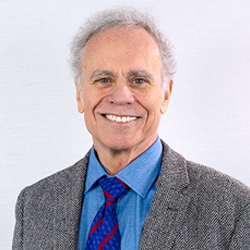Neal Kingston, Ph. D.

University Distinguished Professor, Educational Psychology
Director, Achievement and Assessment Institute (AAI)
Vice Provost, Jayhawk Global and Competency-Based Education
Biography
Neal Kingston, Ph.D., is a University Distinguished Professor in the department of Educational Psychology at the University of Kansas, in which he also serves as the Director of Graduate Studies and Director of the Achievement and Assessment Institute (AAI). His research focuses on large-scale assessment, with particular emphasis on how it can better support student learning through the use of learning maps and diagnostic classification models. Current interests include games-based assessment, personalizing assessments to improve student engagement, and the creation of more agile test development approaches. Dr. Kingston has served as principal investigator or co-principal investigator for over 250 research grants. Of particular note was the Dynamic Learning Maps Alternate Assessment grant from the US Department of Education, which was at that time was the largest grant in KU history and which currently serves 23 state departments of education. Other important testing projects include the Kansas Assessment Program, Project Lead The Way, and Adaptive Reading Motivation Measures.
Dr. Kingston is known internationally for his work on large-scale assessment, formative assessment, and learning maps. He has served as a consultant or advisor for organizations such as the AT&T, College Board, Department of Defense Advisory Committee on Military Personnel Testing, Edvantia, General Equivalency Diploma (GED), Kaplan, King Fahd University of Petroleum and Minerals, Merrill Lynch, National Council on Disability, Qeyas (Saudi Arabian National Center for Assessment in Higher Education), the state of New Hampshire, the state of Utah, the U.S. Department of Education, and Western Governors University.
As Director of AAI, Dr. Kingston is responsible for the support of multiple research centers with about 400 year-round staff and about 150 temporary employees.
Education
- Ph.D. Educational Measurement, Teachers College, Columbia University, New York, NY, 1983
- M.Phil. Educational Measurement, Teachers College, Columbia University, New York, NY, 1983
- M.Ed. Educational Measurement, Teachers College, Columbia University, New York, NY, 1978
- M.A. Psychology in Education, Teachers College, Columbia University, New York, NY, 1977
- B.A. Liberal Studies (concentrations in Biology & Education), State University of New York, Stony Brook, NY, 1974
Teaching
Currently Dr. Kingston teaches a proseminar in research, evaluation, measurement, and statistics every semester and a course in meta-analysis the spring of even numbered years.
EPSY 812 – Meta-analysis, Broad Course Learning Goals
- Students will be able to conduct a comprehensive review of literature using electronic databases and backward and forward search techniques.
- Students will be able to calculate different kinds of effect sizes and transform among different effect size measures.
- Students will be able to code their data in ways that will illuminate variables not addressed explicitly in their primary research sources.
- Students will be able to compute statistics necessary for a fixed effect meta-analysis.
- Students will be able to compute statistics necessary for a random effects meta-analysis.
- Students will know under what circumstances it is appropriate to conduct a fixed effect and a random effects meta-analysis.
- Students will be able to make inferences about a field of research based on the heterogeneity of the set of effect sizes.
- Students will understand how statistical artifacts impact meta-analytic results, be able to determine if such artifacts are likely problematic in their data and be able to adjust for or otherwise address these issues.
- Students will be able to present meta-analytic results consistent with professional standards.